
COP27: There’s Still Time to Tackle the Climate Crisis
December 1, 2022
United States President Joe Biden delivered remarks at the COP27 summit this month.
This year’s COP27, the 27th annual United Nations Climate Summit, is underway in Sharm el-Sheikh, Egypt. The Conference of the Parties, as the summit is officially called, consists of the 198 signers of the United Nations Framework Convention on Climate Change (UNFCCC) treaty.
COP27’s outcomes were remarkable; it marks an end to the planning period and shows us that countries are ready to collaborate on this global issue. However, it also tells us that it is impossible for climate change to be resolved unless we work together. As the young population, we need to actively reduce waste to save the planet and our future.
Questions Remain After Week One of COP27
As world leaders continue to release progress on climate change in the first week of the COP27 summit, it’s important to note how non-state actors, like private businesses, have been stepping up. It raises up the important mission of COP27 after the “rulebook” set in COP26 that “Together for Implementation” is the key to success in handling the climate crisis. Climate change is of such great importance that it is impossible for any individual country, sector, organization, or league to deal with it single-handedly.
“Loss and Damage” Still on the Podium
One of the greatest focuses in Week One was the issue of resolving financial “Loss and Damage.” This specifically refers to the irreversible impacts that climate change has led to, or will lead to, such as the rise of sea levels, loss of arable land and fuel, and loss of biodiversity.
Developing countries, especially those countries that will likely be exposed to seawater, have pledged for the developed countries to financially support and make up for the Loss and Damage impact on them. They believe that as poorer nations, they are the least pollutants but get polluted and impacted the most. However, developed nations have rejected the calls for fear of sinking into a bottomless pit of compensation. Officials expect the Loss and Damage topic to be highlighted in Week Two of the conference.
Combatting Greenwashing
Throughout the first week, the expert group officially launched to ensure the probity of corporate pledges of “net zero.” A discussion was held regarding the 10 key standards companies should meet in order to verify the integrity of their net-zero pledge. One of the standards stated that companies claiming to complete the net-zero pledge should reduce emissions on a full scale, covering all stages, including production and the supply chain. A detailed plan of transition to demonstrate how finance regulation will also be required.
The standards are ought to ensure that green companies will not expand fossil-fuel or deforestation-related activities and will not lobby against climate action.
5°C: will it stay alive?
On November 18, the Global Carbon Budget Initiative again warned the officials that there is a 50-50 chance for global temperature rise to breach the 1.5°C threshold as promised during the Paris Agreement in 2015. Its report indicates and urges the importance of negotiations during the COP27 conference, also warning that global temperature rise can potentially reach a hazardous 2.4° to 2.6°C by 2030 without effective communication and consensus between countries.
Looking ahead to Week 2, the ministers either return home or travel to Indonesia for the G20 summit. Rumors exist, claiming that the 1.5°C threshold will be contested by countries such as China and India during the G20 summit at Bali.
These issues remain uncertain, but the recent talk between US President Joe Biden and Chinese President Xi Jinping showed to the world that the US-China relationship is a competition instead of a conflict. This can indicate a better feed into COP27. If collaborations happen, then it will be easier for more progress to be made on the thorny problems.
1.5°C: We Are Running Out of Time
One of the most pressing issues highlighted throughout COP27 has been whether we can reach the 1.5C agreement made by national governments during the Paris 2015 Agreement.
In 2015, the Paris Agreement established the remarkable Long-Term Temperature Goal that states “holding the increase in the global average temperature to well below 2C above pre-industrial levels,” ideally limiting it within 1.5°C above preindustrial levels, with common recognition that meeting this goal will significantly reduce the risks and minimize the impacts of climate change. It requires governments to put forward the 2030 pledges to cut emissions to limit warming. Currently, science tells us that we must—and as of now, we can—reach the 1.5°C goal, but we are running out of time.
It has been made clear by the IPCC, that limiting temperature rise within 1.5°C can avoid the worst impacts climate change can elicit. Merely a difference between 1.5°C and 2°C can create tremendous distinctions. More warming directly enlarges the impact of climate change, and even a small degree can lead to extreme impacts such as massive heatwaves, heavy rainfall, and droughts, as well as the catastrophic risk of crossing tipping points of our planet’s system.
Yes, we can still reach the 1.5°C goal—however, the window is soon to be closed; we are now at 1.2°C above the preindustrial level. As Climate 101 tells us, 1.5°C is now a limit, not a target. We must put forward our full effort to stay within the limit in order to prevent worsening impacts and potential suffering that a breach can bring. Of course, convincing your family to purchase a new, fuel-efficient car or shutting down factories to prevent warming is impractical, but there are still some simple things you can do to contribute to the achievement of the 1.5°C—even just a little bit.
Try to switch your lightbulbs whenever necessary, or remind yourself to shut any light sources, devices, or tablets down when you aren’t using it. That can save you thousands of pounds of CO2 per year.
When purchasing food, try to choose choices within your local region: the transportation between goods can also cause quite a lot of emissions. In addition, try to avoid food and beverages with too much packaging. The reduction of garbage is also essential to lowering CO2.
Lastly, try to take a closer look at the things we can do in life that can take us an extra minute. For instance, when finishing lunch at school, simply take a closer look at the symbols indicating the food to be composted or landfill; when throwing out garbage or clothing, look to see if there are any opportunities for them to be reused or recycled. It is the small things in life that combine to create a larger outcome.
Week 2 of COP27 Highlights Women Empowerment
As we progressed with Week Two of COP27, the importance of women as the key drivers of climate change solutions, as well as water, were highlighted during the week. Meanwhile, discussions were still ongoing regarding the important issues of “Loss and Damage.”
Empowering women to build inclusive societies that embrace gender equality is necessary to achieve sustainable development for all. When women are empowered to take part in decision-making processes, it results in greater social inclusion and greater economic prosperity for entire communities.
Globally, girls and women are significantly impacted by climate change, as noted by the UN’s Office of the Higher Commission (OHC). They are disproportionately affected by the loss of food security, natural disasters, and climate-related migration. The effect of climate change on women and girls can have devastating consequences on their health, education, and livelihoods. Displacement due to natural disasters such as floods, landslides and droughts makes women and children particularly vulnerable to violence and exploitation. In fact, 80 percent of people displaced by climate change have been women, according to the OHC.
But as UN Women highlighted, women are not only victims in this global crisis. Women around the world also have major roles to play in addressing the challenges of climate change. However, they are also often discriminated against and excluded from decision-making processes about climate change and its impacts. Using dandelions as a symbol of resilience and the need for awareness in women and other more underrepresented populations, female leaders of COP 27 urged for the need to put women and girls in the lead.
The World Health Organization (WHO) estimates that one million babies will die each year because of climate variability and extreme heat on the world’s poorest people between 2030 and 2050. In many countries in Sub-Saharan Africa and South Asia, up to 90 percent of children under five years old suffer from diarrhea caused by contaminated water and poor sanitation facilities. COP 27 also raised discussions on the issue of water: “This is the water COP,” Csaba Kőrösi, President of the UN General Assembly, said at the summit.
The impacts of climate change have interrupted the Earth’s water cycle, leading to unnatural disasters and climate patterns such as floods, large rainfalls, and droughts, affecting millions of people who did not have access to water in the first place. Notably, the Action for Water Adaption and Resilience (AWARe) initiative was launched during COP27, with its principal aims being saving water, improving water quality and supply, as well as promoting cooperation between states and interlink water with climate action.
Though not everyone is able to donate to areas with inadequate water quality and supply, what we can do is try our best to save our limited water resources. When washing, try your best not to turn the faucet on when you don’t need it. In daily life, watch out for leaks and faucets left on as the drops can accumulate to a huge level of waste. During the season, try to reduce shower and bath times—remind yourself that there are many people who are suffering without water.
Though Not a Five-Year Review Point, COP27 Will Go Down in History
Though not a five-year review point like COP26 in Glasgow, COP27 represents an important departure from the UNFCCC’s agreed timetable and in that sense demonstrates the increasing urgency of reducing emissions: an urgency juxtaposed against the record high attendance of representatives from oil and gas companies and the anguished debate about the role of gas as a transitional fuel.
As COP27 ended on November 18, researchers were mostly stressing as the plan of phasing out the use of fossil fuels has been objected by several major oil-dependent countries like India. However, despite failing to reach a consensus on this issue, there was one thing that is particularly captivating: low- and middle-income countries have agreed on a new “loss and damage fund” to help them cover the economic costs of environmental damage.
The pass of this fund is remarkable: after decades of pushing, it would support climate-vulnerable, developing countries from experiencing the detrimental impacts of climate change, such as Somalia, where the ongoing drought is currently leading more than seven million people to starve, or Pakistan, where the flood flow led to a huge financial loss of over US$30 billion. It doesn’t symbolize a form of charity to developing countries, but instead a down payment to the world’s common future.
In addition to the funding plan, COP27 also shifted parts of its focus to food, which is a “real progress in terms of words”, as Joachim von Braun says. The conference highlighted the goal for food and its importance in climate issues. “Safeguarding food security and ending hunger” is a vital priority, and if water systems and food security are conserved and ensured, then communities will be able to better protect themselves.
The final document, a 10-page summary, was signed by countries on November 20, agreed on the funding plan to developing countries, and made it clear that limiting global warming to 1.5°C will require “rapid, deep and sustained reductions in greenhouse gas emissions (GHG) by 2030.
COP27 made a clear stance that action needs to be taken: the windows are closing shortly for us to fulfill the pledge made, and stakeholders will need to react quickly before the impacts become irreversible. It has often been stated that climate action is phasing out to the implementation stage. However, the lack of imagination led to the failure to push forward the abolishment of fossil fuels, in turn leaving this crucial element unanswered for COP28. What COP27 tells us is that, as the new stage begins, integrity and collaboration are essential, as the voices of the climate-vulnerable states and the youth remind us again and again.


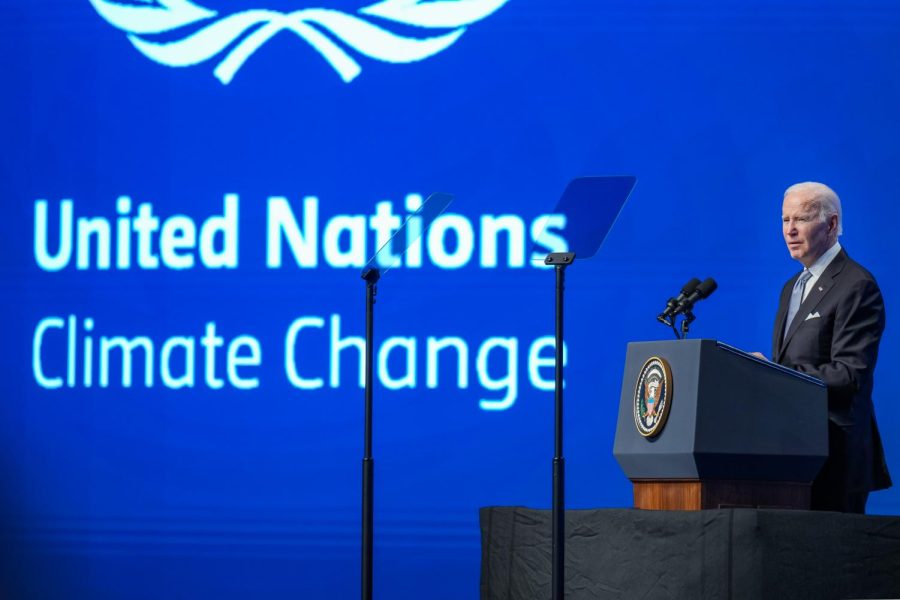
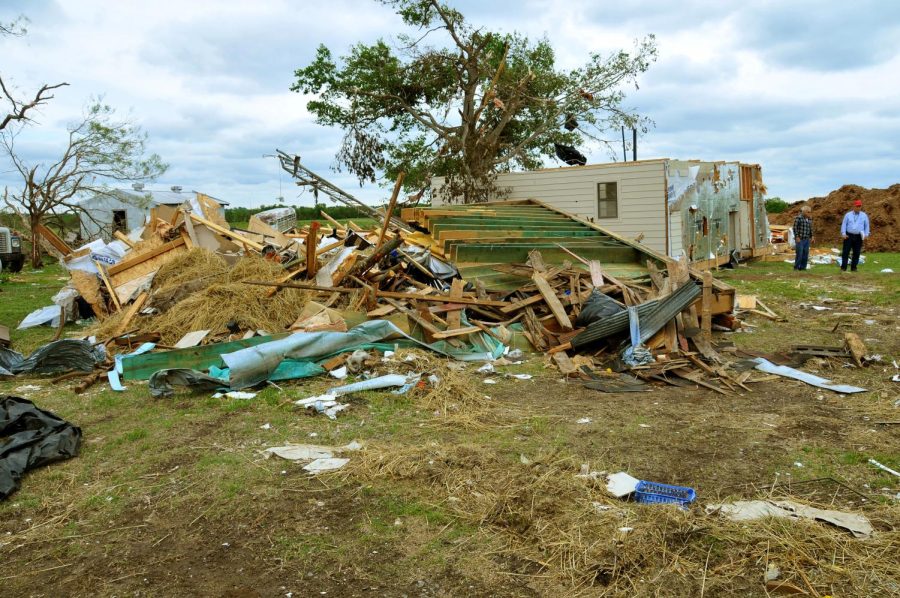
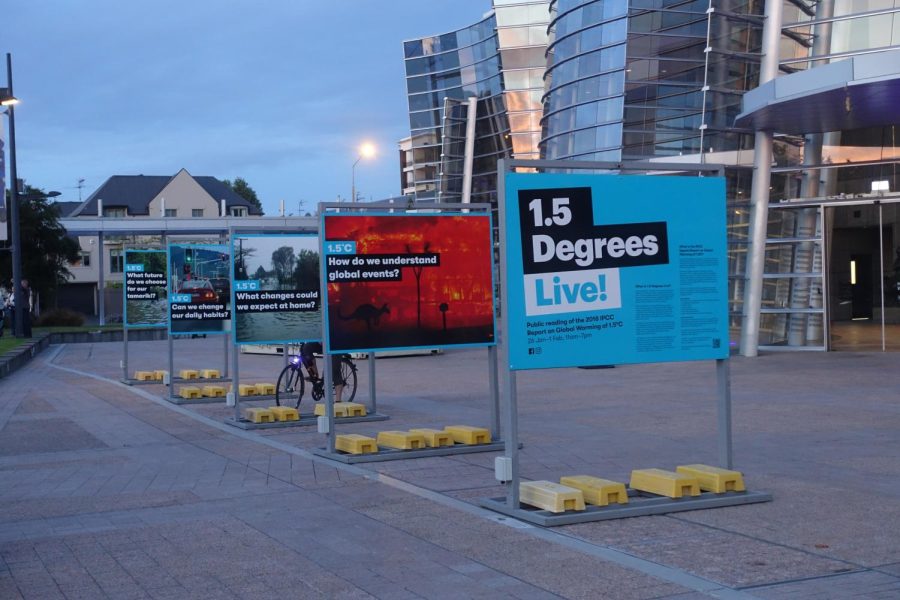
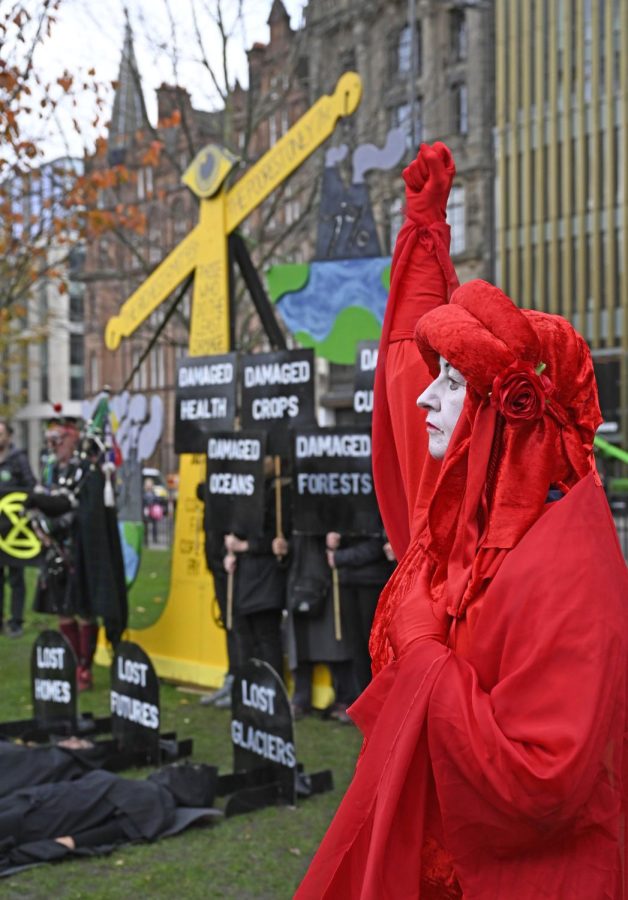
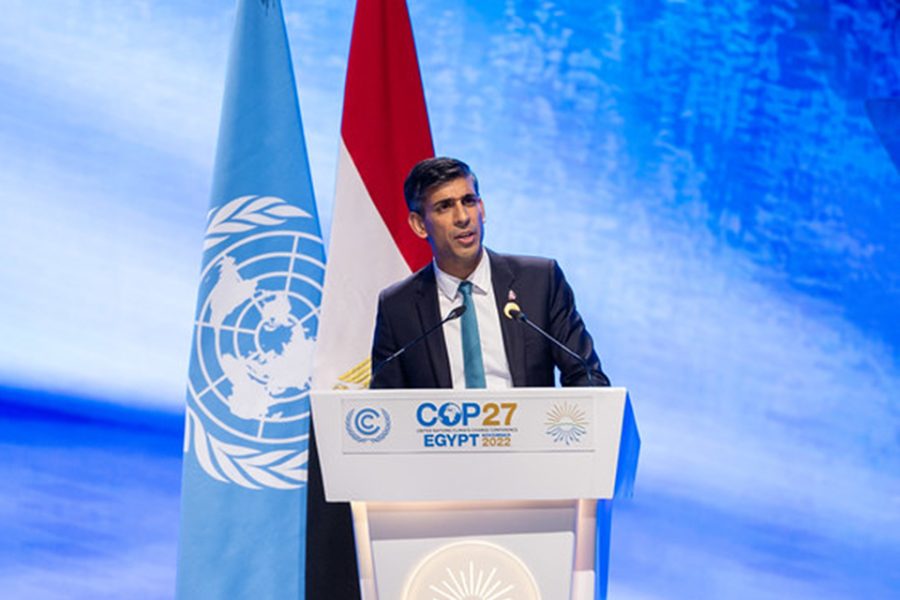
Coco • Dec 1, 2022 at 1:07 pm
Nice job Mary